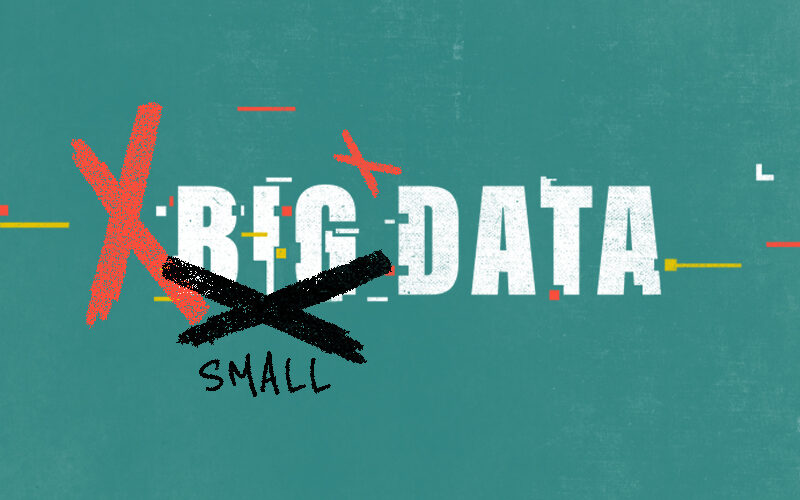A lot of startups and smaller technology companies ask me how they can engage and win work in government. My first response is usually…‘don’t’.
These damning words are from Ian Apperley, an ex tender manager for major services contracts. He watched as companies went through year-long application processes only for the Chief Information Officer to choose someone entirely different at the last minute.
The Australian government awarded AUD $70 billion worth of procurement contracts in 2020/21. Startups (or ‘small enterprises’) accounted for around 13.5% of those awards.
Startups and small companies are not just losing the race. They’re not getting the chance to run.
Running a country the size of Australia is no joke. It’s the public sector’s job to ensure we have healthcare, education, infrastructure, construction, emergency services, a military – all the things a developed society needs to function.
When it needs these things fulfilled, the government announces a call for tenders. Suppliers then bid on those calls. The companies bidding for and winning these contracts are not startups. They’re usually large and established with cosy relationships with decision makers. They charge outsized sums. They hold reputations.
But are they the best people for the job? And if not, why aren’t startups trying to compete?
Why are startups avoiding government contracts?
Procurement contracts are not exactly sexy. They can be dry, utilitarian, and bureaucratic. They can seem inaccessible to newcomers unfamiliar with the often rigorous application processes. But the culture goes deeper.
Favouritism. Government agencies can be biased towards large companies. It’s not necessarily because of prejudice towards smaller ones – the private sector is inherently risk-averse. Their actions and spending decisions are heavily scrutinised by citizens and politicians alike. If something goes wrong, there is infinite opportunity for criticism.
Reputation. ‘Plausible brand deniability’ is often at play with government agencies. It’s easy to defend yourself when you hire the likes of Oracle, Deloitte, and IBM for a project that ultimately failed (“We hired the best!”), but good luck defending yourself when you hired a relatively unknown company and got burned.
As Ian Apperley hilariously continues:
Fear is the first factor. Any CIO that backs the wrong horse has a perception that they will be publicly executed. Unfortunately, in government, you have to do something particularly dumb to get the sack. Non-performance is routinely rewarded in some agencies.
Bidding process. Bidding for government contracts is complex and time-consuming. Some ask for references. There can be long lists of requirements – you must have B-corp certification, a certain number of employees, offices in certain areas, and so on. It’s not hard to imagine a start-up founder feeling daunted by the sheer volume of entry barriers.
How can startups get in on the action?
The truth is, there’s serious money to be made in government contracting. It can be an awesome way to get cash flowing, to make connections, and to build regular revenue. But there are some extra steps startups have to take to become serious contenders for procurement contracts.
Making partnerships. A consortium of startups bidding for a contract has a better chance against a single startup. It can provide a broader capability set, as well as helping you hit certain quotas like team size.
Using templates. Writing procurement contract applications from scratch each time is a full-time job in itself. Come up with strategic and agile ways to multi-apply. Build a template and reuse and rewrite it for each application. You might be surprised at how much is transferable (and it gets easier every time you apply and become more familiar).
Adding value. Bigger companies command a higher price point. Government agencies can be reluctant to change suppliers even at a saving, so convince them the saving will be worth their while. There can be a tendency to just throw the whole budget at public sector projects, even if it’s massive. See if you can find ways to use that budget to offer extra value. And don’t always bid the lowest – your perceived value can be tied closely to your price tag.
Can the government help startups get in on the action?
There are some things the government could do a lot better.
Creating a single, easily-accessible directory for government tenders would be one. Different government agencies use various procurement firms to source for contracts, making them hard to discover. Aggregating them would make the discovery process much easier.
Naturally, there’s a startup doing what the government isn’t. Cube RM, a Swiss startup, built a software platform for companies to apply for and manage government tenders. It raised USD $8 million from VCs in December 2021, and seeks to address the “ubiquitous lack of digitalisation and abundance of inefficient bureaucratic processes” inherent in procurement. Strong words.
More damningly, tenders often come with obscure technical and organisational requirements that scare startups away. Bidders are not invited to just have a try or learn as they go. There’s an implication you need to be an expert right off the bat. But this isn’t the case for many large companies who bid, and there’s a surprising amount of “just bid and we’ll figure it out when we get there”. The difference there is confidence.
Is the tide turning on procurement favouritism?
It’s starting to look like confidence and good connections won’t carry big companies through forever.
The Commonwealth Procurement Rules (CPRs) were also introduced in December 2020, meaning that all potential suppliers are treated equitably based on their commercial, legal, technical and financial abilities and are not discriminated against due to their size. The rules will ensure also that government:
- source at least 10 per cent by value of all procurement from SMEs
- source at least 35 per cent of contracts valued up to $20 million from SMEs
So we’re definitely on the right track.
In 2020, startups secured $500,000 worth of contracts through the Victorian government.
In the same year, the Government of New South Wales promised to stop making significant spending commitments for IT projects, but rather spend what’s required as a project proceeds.
Throwing out big numbers ahead of time has always been the norm, so this is a revolutionary new modus operandi. It means agents need to be more careful about their spending, and that “delivery and performance architecture [should be] baked in” – something agile young startups may naturally do better than bloated big businesses.
The Victoria State government is also making efforts to get familiar with local startups. It recently announced a Government Liaison Service for early-stage startups to help them navigate the intricacies of government procurement and develop close relationships with the government. This follows the $2.5 million it funnelled into a startup accelerator in 2018, which was specifically designed for helping startups secure procurement contracts.
There is very little to say that big companies are better than startups at giving the public sector what it needs (in fact, there is ample evidence to the contrary). They’ve held preference for too long thanks to tradition, favour currying, and good old-fashioned nepotism. But old-fashioned is exactly what it is.
As policy change fuels a new culture, there’s never been a better time for startups to test the public sector waters, and take a slice of the potentially lucrative business procurement can bring.











